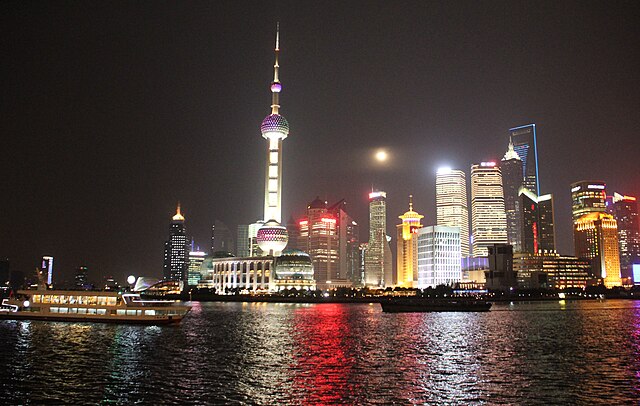|
China Watchers Look to Economic Conference for Signs of What’s Next

Nighttime skylines in Pudong, China's financial and commercial hub, in Shanghai, China, Feb. 8, 2012. (Public Domain)
December 12, 2023 7:08 AM
Zhang Legu
Washington —
As the impact of China's economic slowdown ripples across the globe, countries are watching to see what steps Beijing might take next to revive the world’s second-largest economy. One key meeting that might shed some light on those questions is the Central Economic Work Conference, an annual gathering China’s leaders host in early or mid-December to set economic policies and goals for year ahead.
From a feeble post-pandemic recovery to high youth unemployment, a real estate crisis and ballooning local government debt, China’s economic planners have a lot to discuss amid geopolitical tensions and slow global growth.
China has yet to announce when the meeting will take place, but a key signal that the conference could happen soon came Friday when Chinese President Xi Jinping chaired a meeting of the country’s top decision-making body, the Politburo, to discuss the economy in 2024, according to state media.
What is the Central Economic Work Conference, or CEWC?
One of the most observed annual meetings among China watchers, the CEWC sizes up the current economic situation and sets macroeconomic tasks for the coming year.
Typically lasting two to four days sometime in early to mid-December, the CEWC is chaired by President Xi with Chinese Community Party officials and government leaders from central and provincial level agencies in attendance. Held behind closed doors, a communique summarizing proceedings is typically issued by the state-run Xinhua News Agency after the meeting concludes.
What to watch
China’s economic quagmire is also plagued by a shadow-banking crisis, accelerated withdrawal of foreign investment and historically low consumer confidence. Stimulus measures to reverse the country’s slower-than-expected post-COVID recovery have yet to show progress. These include interest rate cuts by the central bank, an additional 1 trillion yuan ($143 billion) of treasury bonds issued by the end of 2023, reduced real estate down-payments, and raising the budget deficit from 3% to 3.8% of GDP. Measures also included additional deductions for personal income tax for the care of infants and young children, as well as support for the elderly.
Some economists, however, say it’s not enough, while others argue that China has not introduced any real stimulus measures at all.
“Actually, to be frank, I don't think anything [that] has happened should be considered stimulus,” Wei Yao, Head of Research & Chief Economist for APAC at Société Générale, told CNBC on December 5. “They are stop-gap measures. Even the extra 1 trillion [central government debt] issuance — if you compare that amount to land sales revenue, that's lost because of the housing correction. It's not even enough.”
‘Prudent,’ not ‘forceful’ policies
The December 8 Politburo meeting of the 24-member Central Committee of the Chinese Communist Party was the "tone-setting meeting" for this year's CEWC. A statement from that gathering said China will "continue to implement proactive fiscal policies and prudent monetary policies" in 2024.
China’s Politburo also declared that monetary policy should be “flexible, appropriate, targeted and effective,” dropping the wording “forceful,” which was used in an April Politburo meeting report.
That change indicates more caution toward broad monetary easing and a greater focus on targeted tools, said a December 8 report by Bloomberg.
“The size of cuts to interest rates and bank reserve requirements may be smaller next year than in 2023,” said Xing Zhaopeng, a senior strategist at Australia & New Zealand Banking Group, according to Bloomberg.
Copyright © Dec 2023 Voice of America. All Rights Reserved.
Back To Country Profile
|